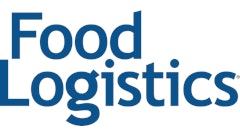Washington: The outbreak of significant instances of E. coli infection and other food-borne illnesses, such as the recent European outbreak which claimed its 37th victim on June 14, 2011, are "inevitable" in the United States, and combating outbreaks is "a huge task," said Michael Taylor, the Food and Drug Administration's deputy commissioner for food at a recent Ogilvy Washington Food Safety Lecture, adding that, "People need to have realistic expectations."
At the same time, Taylor emphasized that the Food Safety Modernization Act, passed in January, will help to create a systematic approach to inspection and compliance and he acknowledged that veterinarians and veterinary medical colleges play an important role in the process of "building a whole new system of prevention," as well as implementing a vigilant and responsive containment strategy. "The more that veterinarians are prepared to play a public health role, the better," he said.
The origin of human food contamination, whether in meat or produce, is often linked to animal sources, said Dr. Marguerite Pappaioanou, executive director of the Association of American Veterinary Medical Colleges (AAVMC). Potential sources of contamination include the slaughter process, the intermingling of animal and plant products during food processing, fertilizer practices, and/or water run-off.
"Veterinarians are an integral part of the food safety system, extending from the farm-to-table," said Pappaioanou. "Veterinary medical education brings a comparative perspective that makes veterinarians uniquely qualified to address the complex challenges that emerge at the intersection of human, animal, and environmental health. Our nation's colleges of veterinary medicine play a critical role in preparing veterinarians to maintain the health of food animals."
Pappaioanou explained that, among other health measures, veterinarians ensure the judicious use of antibiotics, conduct disease surveillance and reporting, and investigate both human and animal outbreaks. They also educate the public in what steps they can take to ensure food safety.
Despite the inevitability of food-borne illness, Taylor said much can be done to prevent or reduce the likelihood of contamination, whether as an accidental part of the food production process or as the result of intentional bioterrorism. He credited the new law with providing "a whole new inspection and compliance toolkit" that includes stronger enforcement and accountability as well as mandatory recall authority.
The U.S. Centers for Disease Control and Prevention (CDC) report that food-borne infections from a dangerous form of E. coli known as 0157 have been dropping in the U.S., but illness from other strains is on the rise.
E. coli is a common and often harmless bacteria, but certain strains can cause problems and, some forms – such as the new 0104 variant causing problems in Europe – develop antibiotic resistance.
"Preventing or reducing food-borne illness and detecting unexpected threats in our food supply requires alert and attentive veterinarians who are well educated and willing to work in high-need areas such as food animal medicine and public health," Pappaioanou said. "This important public health role underscores the importance of veterinarians as essential members of our nation's public health workforce and healthcare team."



















